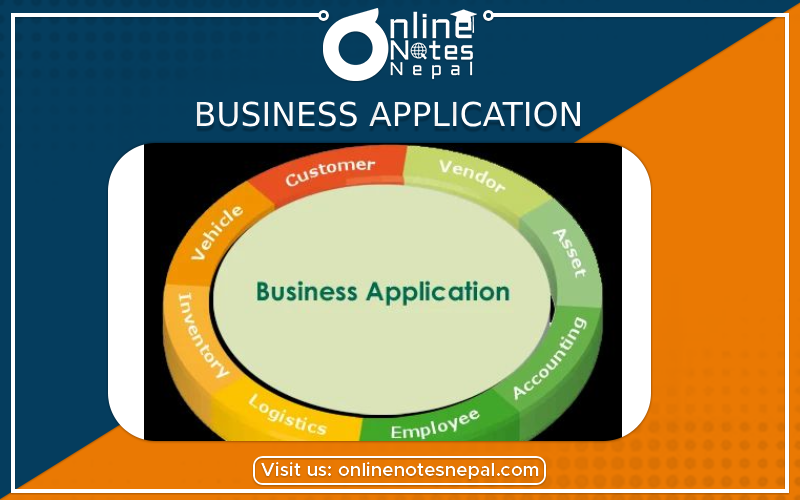Published by: Anu Poudeli
Published date: 18 Jul 2023

Business apps are software programs or tools that are designed to help and simplify various parts of business operations. These applications are geared to specific industry demands and assist firms in improving efficiency, productivity, and decision-making processes. I'll go over some popular sorts of business applications and their benefits below:
ERP Systems: ERP systems combine a variety of services and operations inside a business, including finance, human resources, supply chain management, inventory, and customer relationship management. ERP solutions help businesses make educated decisions, decrease manual errors, and improve communication across departments by centralizing data and automating procedures.
Customer Relationship Management (CRM) Software: CRM software allows firms to efficiently manage their relationships with clients and prospects. It saves client information, tracks sales leads, monitors customer dialogue, and enables customized marketing efforts. CRM systems improve customer service and personalisation, which increases customer happiness and retention.
Project Management apps: Project management apps assist firms in effectively planning, executing, and monitoring projects. These technologies make task assignment, progress tracking, resource allocation, and team collaboration easier. Project management software automates procedures and guarantees that projects are completed on schedule while keeping stakeholders informed.
Platforms for Business Intelligence (BI) and Analytics: BI and analytics programs collect, analyze, and present data to aid in data-driven decision-making. These tools provide information about numerous parts of the firm, such as sales, operations, and financial performance. Businesses may improve their strategy and remain ahead of the competition by detecting trends and patterns.
Accounting Software : Accounting software aids organizations in the management of financial transactions, bookkeeping, invoicing, payroll, and tax compliance. These instruments aid in the maintenance of accurate financial records, the improvement of cash flow management, and the simplification of the accounting process.
HRMS : HRMS software automate different HR processes including as recruitment, employee onboarding, performance reviews, leave management, and payroll processing. HRMS promotes HR decision-making by streamlining administrative procedures, increasing employee engagement, and streamlining administrative tasks.
Software for Supply Chain Management (SCM): SCM solutions improve the movement of goods and services from suppliers to customers. They monitor orders, track inventory levels, and ensure efficient logistics and distribution. SCM software assists firms in lowering costs, increasing supply chain visibility, and shortening delivery times.
Communication and Collaboration programs: Whether through messaging, video conferencing, or project-based collaboration platforms, communication and collaboration programs enable real-time communication among team members. These tools improve teamwork, stimulate innovation, and permit remote work.
Customer Support and Helpdesk Software: Customer support apps allow organizations to give efficient and timely service to their customers over many channels such as email, live chat, or phone. They assist in managing client questions, resolving issues quickly, and maintaining a great customer experience.
Integrating business apps into your firm can result in increased productivity, simpler procedures, better decision-making, improved customer satisfaction, and increased competitiveness. However, it is critical to select the correct apps that correspond with your business needs and goals, ensuring a smooth integration and optimal software utilization.